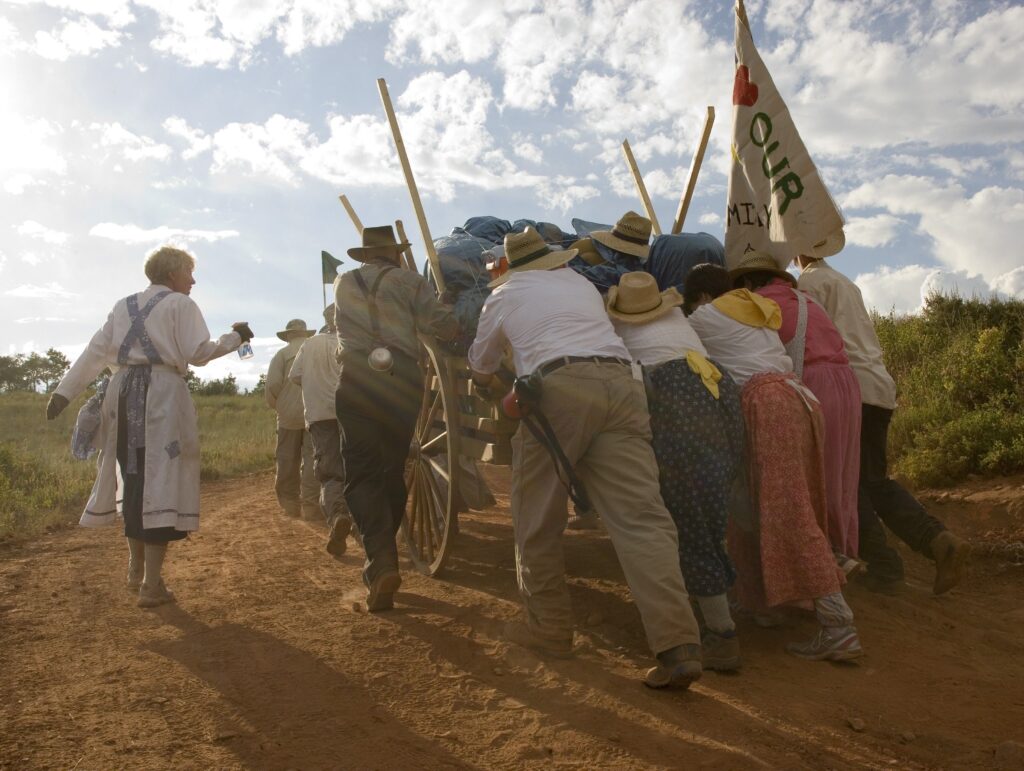"Overcome Evil with Good"

August 14–20

FAIR Faithful Resources for Come, Follow Me 2023 August 14–20. Romans 7–16: “Overcome Evil with Good” Find answers to difficult questions to help you in your learning and teaching. Here is a collection of reliable resources to supplement your study of Romans 7–16. FAIR Resources link to relevant questions which have been answered on the FAIR website. Under Church Resources you’ll find links to the different Come, Follow Me manuals, as well as other helpful links as applicable. Other Resources link to resources outside of FAIR that are trustworthy and helpful.
Main points to ponder
The lesson invites us to gain a deeper understanding of Paul’s use of the terms “predestinate,” “election,” and “foreknow.” Consider the following sources as you ponder the role the House of Israel plays as God’s covenant people:
- see Guide to the Scriptures, “Election”
- Romans 9–11
- Ephesians 1:3–4
- 1 Peter 1:2
- Alma 13:1–5
- Foreordination
In light of the insights you’ve gained from this reading, you may choose to take action in your own life – what can you do to deepen your covenant relationship with Christ, and how can you help others have faith in Jesus Christ and desire to obey his commandments?

Faithful Resources on the FAIR website:
- “Have You Been Saved By Grace?” How Do We Respond?
- Do Latter-day Saints ignore the doctrine of grace at the expense of “works”?
- Salvation by Works or Salvation by Grace – Who Really Believes What?
- Evangelical Questions: How Do ‘Works’ Work?
- Salvation by Grace Alone?
- Salvation for the Dead: A Response to Luke Wilson
- Agency vs. Predestination
- Reevaluating the Great Apostasy
- Mormonism in the Early Jewish Christian Milieu
Resources on the Church website:
Come, Follow Me – For Individuals and Families
Come, Follow Me—For Sunday School
New Testament Videos: Acts of the Apostles
Faithful Resources from other reliable websites:
- Scripture Central, Lynn Hilton Wilson: Romans 7-16: New Testament with Lynne Wilson
- Scripture Central, Taylor and Tyler: Romans 7–16 | Aug 14 – Aug 20 | Come Follow Me Insights
- The Scriptures are Real, Kerry Muhlestein:
- Follow Him, John Bytheway and Hank Smith: Romans 7-16 Part 1 • Dr. Joshua Matson, Romans 7-16 Part 2 • Dr. Joshua Matson, Why is prayer so important? • followHIM Favorites
- Unshaken, Jared Halverson: Come Follow Me – Romans 7-16 (part 1): The Roman Road, Come Follow Me – Romans 7-16 (part 2): Transformed by Christ
- Talking Scriptures, Bryce Dunford and Mike Day: Ep 215 | Romans 7-16, August 14-20
- Don’t Miss This, David Butler and Grace Freeman: Romans 7-16 (Aug. 14-20) Don’t Miss This
- BYU Scripture Roundtable Discussions: Joint-heirs with Christ: Rom. 8-12
Dig Deeper
- General Conference Talks
Sister Chieko Okazaki: Raised in Hope
Sister Linda S. Reeves: Worthy of Our Promised Blessings
Elder Wilford W. Andersen: The Music of the Gospel
- BYU Devotionals
Stephen Robinson: Believing Christ: A Practical Approach to the Atonement | BYU Speeches
Brad Wilcox: His Grace Is Sufficient – Brad Wilcox – BYU Speeches
Lesson Devotional



Braeden is a Senior Editorial Assistant and has worked for the Wilford Woodruff Papers for two years. He is entering his third year in the neuroscience program at Brigham Young University in Provo.

Lesson devotionals are provided by the Wilford Woodruff Papers Foundation. Its mission is to digitally preserve and publish Wilford Woodruff’s eyewitness account of the Restoration of the gospel of Jesus Christ from 1833 to 1898. It seeks to make Wilford Woodruff’s records universally accessible to inspire all people, especially the rising generation, to study and to increase their faith in Jesus Christ. See wilfordwoodruffpapers.org.
“Glory to Be Revealed”
By Braeden Dyer
Recently I attended a sacrament meeting in my wife’s hometown of St. George, Utah, in which all of the speakers were youth and leaders who shared insights from their stake’s trek activity. Multiple youth commented that their favorite experience was the final devotional given by their stake president at the end of their route, overlooking the North Rim of the Grand Canyon. Simply from hearing them describe the event and location, I could feel the spiritual power of coming so close to a new family, enduring much physical hardship, and then listening at the edge of one of the great wonders of the world to the gospel truths and powerful history of those who came before us in the Church.
In this week’s Come, Follow Me, we read Paul’s writing: “For I reckon that the sufferings of this present time are not worthy to be compared with the glory which shall be revealed in us” (Romans 8:18). Surely, for the youth and leaders on that trek, suffering was common among them; however, a sobering reality of that activity and every one like it that the stakes of the Church organize is that it was only a few days long, accompanied by the comfort of good food, water, sleeping pads and bags and tents—equipment the pioneers sorely lacked. Another sobering reality is that many on that trek likely returned home to a more difficult emotional situation at home than the trek was physically. Many of us are burdened with the “sufferings of the present time.” Despite this truth, and like the final devotional at the rim of the Grand Canyon, we are promised that the sufferings we pass through “are not worthy to be compared to the glory” that will come after the storms pass.
On February 23, 1848, Wilford Woodruff recorded a discourse Brigham Young gave at a funeral. The prophet said many words in regard to the suffering of the Saints at the time, among which were the following:
If I had power with the limited knowledge I have, I should sweep from the midst of this people sickness, pain, sorrow, poverty and persecution and mobbings. I don’t suppose I should ever have suffered this people to have been driven at all by a mob, but as the Lord knows so much more than we do He has suffered it so to be, and it is for a wise purpose in God. It is for our good and will finally prove for our exaltation and glory in the eternal world, and gives us experience in this life which we otherwise should not have had.1
I have seen through my own experience that these words are true, that God allows us to pass through trials so we can learn to rely on Him, grow to be more like our heavenly parents, gain essential wisdom we would not otherwise be gifted with—and so we can truly appreciate our own spiritual scenic overlooks.
Some original historical text has been edited for clarity and readability.
1 Wilford Woodruff’s Journal, February 23, 1848, p. 135, The Wilford Woodruff Papers, wilfordwoodruffpapers.org/1848-02-23.


Chapter Summaries
1-6: Paul compares our acceptance of a new relationship with Christ to marriage. While married, it would have been a sin to be with someone other than our spouse. But if the spouse is dead, we can remarry. Paul invites us to “remarry” the new law of Christ, leaving behind the old (dead) law.
7-25: The old law helped to make us more aware of our fallen state. We didn’t want to sin, but found ourselves unable to fully obey the law.
1-11: Instead of living according to the law and the flesh, we are invited to live in Christ through the Spirit.
12-37: A Spirit filled life emphasizes that we are children of God, “joint heirs with Christ” (v.17). Incredible blessings are ours as we accept and follow Jesus. For example, “we know that all things work together for good to them that love God,” (v. 28) and “If God be for us, who can be against us?”, (v. 31).
37-38: Paul concludes this chapter with this beautiful assurance: ”For I am persuaded, that neither death, nor life, nor angels, nor principalities, nor powers, nor things present, nor things to come, Nor height, nor depth, nor any other creature, shall be able to separate us from the love of God, which is in Christ Jesus our Lord.’
Read Romans 8 now
Romans 9
1-5: Paul expresses his sorrow over Israel’s rejection of the Messiah.
6-29: Paul uses examples and scriptures from the Old Testament to show that though God chose Israel, they did not always choose Him. Also, He can work “outside the box” to call people to receive His blessings, for example, Jacob over Esau or Gentiles over Jews.
30-33: Paul again emphasizes that it is not the law, but faith that leads to righteousness and a relationship with God.
Read Romans 9 now
1-13: The Jews may struggle to have faith in Jesus, as it requires a paradigm shift. Previously, their righteousness was based on obedience to the law. Now it needs to be based on faith in Jesus Christ.
14-15: Hence the need for missionary efforts.
16-21: Paul quotes Old Testament prophets who said that Israel would be slow to accept Jesus.
Read Romans 10 now
1-16: Knowing that Israel would be slow to accept their Messiah, has God rejected Israel? No. They will receive truth through the Gentiles.
17-36: Paul uses the allegory of the olive tree to assure the Gentiles that they can be grafted in and share the nourishment of the root. And, the broken natural branches (Israel) can be grafted in again. All have been disobedient, and all can be redeemed.
Read Romans 11 now
1-8: Find joy in serving God, recognizing that we all have different talents to dedicate to His work. So we, being many, are one body in Christ, and every one members one of another. (verse 5)
9-21: A list of characteristics that will help us live Christian lives.
Read Romans 12 now
1-7: We should support and obey governments.
8-10: A reminder that love is the fulfillment of the law. We are called to love our neighbors as ourselves.
11-14: The gospel light is a call to leave behind works or actions of darkness and walk in its glorious light.
Read Romans 13 now
1-22: We should not condemn or discourage others if their faith takes a different path than ours. Paul uses the example of what we choose to eat, for example meat vs. vegetarianism. We are called to not judge but instead support one another and seek for peace and mutual edification.
Read Romans 14 now
1-7: Paul again encourages the Roman Saints to be supportive of each other and united in their love and faith as this is a way to glorify God.
8-13: Christ’s message is for all, bringing hope, joy and peace to Jew and Gentile alike.
14-15: Paul has confidence in the faith of the Roman saints and is writing to encourage them.
16-33: Paul again describes the joy he feels in being a missionary, he describes his travels and hopes to see them again, and asks for prayers on his behalf.
Read Romans 15 now
1-16: Paul encourages the Roman saints to accept and get to know various Christians who they may encounter.
17-20: Christians need to stay clear of those who seek to create obstacles to faith or sow division and discord.
21-23: A few last greetings sent from others with whom Paul has worked.
24-27: Paul closes his epistle, dedicating his efforts to God and Jesus.
Read Romans 16 now
Faithful Resources, and Faithful Resources. Also, Faithful Resources therefore Faithful Resources. But without Faithful Resources you’ll need Faithful Resources; because Faithful Resources help. Twelve apostles give Faithful Resources, therefore Faithful Resources abound. Since Faithful Resources at Faithful Resources then Faithful Resources because Faithful. Resources at Faithful Resources as Faithful Resources are Faithful Resources therefore Faithful Resources. Again, Faithful Resources Faithful Resources Faithful Resources Faithful Resources Faithful Resources Faithful Resources Faithful Resources. Since Faithful Resources then Faithful Resources.

